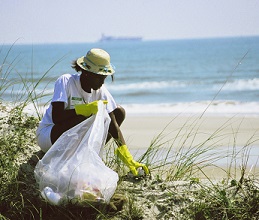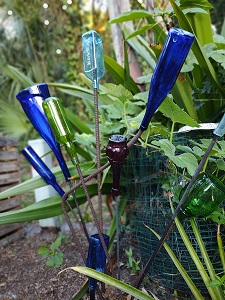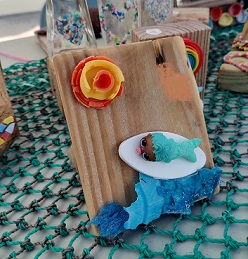
Love the Ocean- June is National Ocean Month
If you are like me, you love the beach. A day at the beach always reminds me how small I am and how insignificant my problems. I have felt this way since my first sighting of the Atlantic Ocean when I was four years old and all that moving water was scary-big.
On that first trip to the beach, I learned some beach etiquette. We will call them manners. “Do not kick sand.”, “Do not throw sand.”, “Do not shake the sand off your towel onto you neighbor.” Hey, I was four. But we could now add some rules for us grown-ups: Clean up the trash. A clean beach is more pleasing to the eye. After all, don’t we like to come sit on a clean beach?
There are new studies that positively link mental health and blue spaces (water, lakes, streams, oceans, etc.). Mental wellness can be greatly improved by exposure to outdoor natural areas such as the beaches, forests, lakes, and hiking trails. These may even help those who struggle with memory issues, depression, and post-traumatic stress disorder (PTSD).
But What if the Beach is Littered?
To help keep the ocean clean, I try to remove more trash than I bring to the beach. I get my family to help me pick up any discarded man-made items on our way back to the parking lot after a beach day. Scout your area. Remove any unsightly beach debris you or others may have left behind. Always leave the beach cleaner than you found it.

Some of the more common beach debris:
- Cigarette butts
- Bottle caps
- Cans & bottles
- old glass bottles
- Plastic eating utensils
- Hair combs
- Broken sunglasses
- Fishing line, monofilament, and net pieces
- Masks & latex gloves (thank you Covid-19)
- Plastic grocery and Ziploc bags
- Broken plastic toys
- Drinking straws & Styrofoam cups
- Lumber
Some of these items are extremely dangerous for wildlife. Discarded drinking straws are responsible for many dolphin and sea turtle deaths. Others are just a nuisance or ugly. To learn more about Microplastic pollution, the Florida Sea Grant Extension and Education Program has a Microplastics Awareness Project with links to fact sheets, their Facebook page, maps, and ways you can get involved.
It Might Be a Good Time to Quit – Smoking
One of the most toxic things for our waterways is cigarette butts (https://www.sciencedirect.com). The world’s most common form of litter, these bits of refuse may be more harmful after you discard them than when they were being smoked. Cigarette butts should be considered dangerous hazardous waste. Try a Google search of “cigarette butt leachates”. It will sicken you, maybe even enough to help you quit the addiction.

Let There Be… Beach Art
On the lighter side, some beachgoers are really leaving the beach cleaner. An artist in Fort Pierce, Florida, creates art from the detritus she finds on the beach. She sells these whimsical pieces at craft shows and farmers markets. Others make woodworking projects and furniture from lumber found washed ashore.
Recycling and Up-cycling
Cans and bottles found on the beach may be recycled or repurposed into ornaments. In fact, most of our Indian River County beaches have recycling containers at the parking lot side of boardwalks for this purpose.
My hope would be that we all love the planet enough to keep litter out of the ocean and waterways. I hope the ocean is clean for the inhabitants of the water. Can we make the ocean clean for our children and grandchildren to swim and play there? And for the fish we eat from the sea? I hope that our great-great-grandchildren will love this vast, mysterious, undulating, living thing we call the ocean.
To learn more about sea turtle conservation, please visit the University of Florida’s Institute of Food and Agricultural Sciences (UF/IFAS) Electronic Data Information Source (EDIS) publication, “Sea Turtle Conservation: 10 Ways You Can Help”.
Another UF/IFAS EDIS publication, “Healthy Living Lifestyle Habits: Land and Sea” has much information on ways to get involved in Citizen Science for mental health, more physical activity, and blue-space impacts on well-being.
The EDIS publication, “Bioplastics- a better option for the environment”, is a source for information on how to choose better, more biodegradable, “disposable” products.
 2
2
